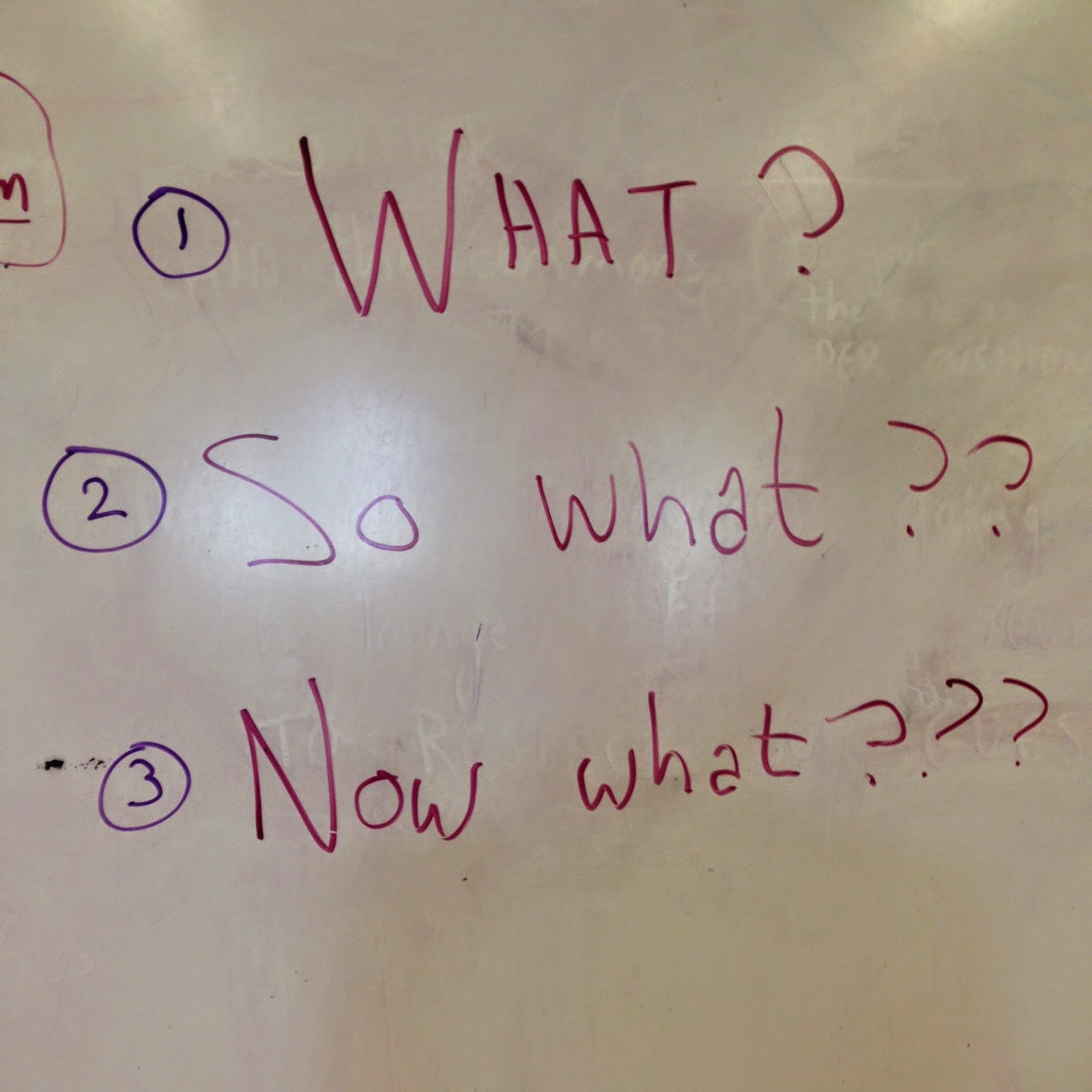Our Place Out of Time experience is nearing its conclusion, and the middle school gathered this morning to begin talking about the value of reflection. We opened with a few quotes. The first two come from John Dewey.
- “We do not learn so much from experience as we do from reflecting on our experience.”
- “Perhaps the greatest of all pedagogical fallacies is the notion that a person learns only the particular thing he is studying at the time.”
- – John Dewey
(New vocabulary words for most of the group: "pedagogical" and "fallacies.")
The third came from a source a little more familiar to many of us:
- Harry stared at the stone basin. The contents had returned to their original, silvery white state, swirling and rippling beneath his gaze.
- “ What is it?” Harry asked shakily.
- “This? It is called a Pensieve,” said Dumbledore. “ I sometimes find, and I am sure you
- know the feeling, that I simply have too many thoughts and memories crammed into my
- mind.”
- “Err,” said Harry who couldn’t truthfully say that he had ever felt anything of the sort.
- “At these times” said Dumbledore, indicating the stone basin, “ I use the Penseive. One simply siphons the excess thoughts from one’s mind, pours them into a basin, and examines them at one’s leisure. It becomes easier to spot patterns and links, you
- understand, when they are in this form.’
- - Excerpt from Harry Potter and the Goblet of Fire, by J. K. Rowling
It is perhaps worth noting that I looked like this for the duration of this discussion:
 |
| (If you look closely, you might notice a hint of dry erase marker on my face.) |
I used myself as an example. As a teacher, you have to earn the respect of your students. Were I to get dressed each day, look myself up and down, and leave the house without looking in the mirror, my day might look a lot like this:
 |
| For some reason, I am failing to command their respect. |
A mirror provides an external reflection that gives one instantaneous feedback on aspects of your appearance that you would otherwise be unable to see.
Dumbledore's Penseive serves a similar function. By getting his thoughts out of his head, he's able to parse through them from a different perspective.
There are any number of ways to reflect on something, but we started with a simple format:
1. What?
- What are you reflecting on? Be objective. Don't add commentary or emotion, simply describe what Place Out of Time is, as you might explain it to a new student or a parent.
2. So what??
- Now that you've objectively articulated the basics of the project, begin writing about your own experiences. What was the value of the experience? What did you learn? What skills did you develop? What was particularly challenging? Where did you exceed your expectations? Where did you fall short? What did you like and dislike about the experience?
3. Now what???
- After thinking and writing about your experience and performance, how can you learn from it? What were the causes of your struggles, and how can you address them? Where did you thrive, and what does that say about your interests and skills?
After our discussion, we began writing our reflections (and I washed my face). We'll continue working on them the rest of the week.


No comments:
Post a Comment